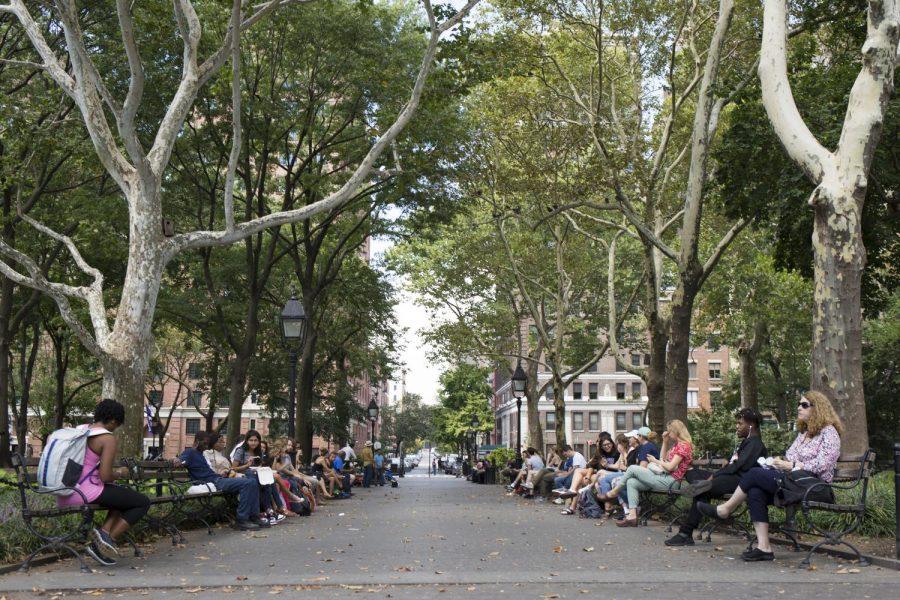We’ve got a productivity problem. Checking off items on our to-do lists is strangely euphoric, and suspiciously addictive. While getting things done isn’t a bad thing, there’s a dark side to our preoccupation with productivity, in that most of us have started using it as a measure of self-worth. We believe an unproductive day is a worthless one; any relaxation makes us feel useless and if we aren’t achieving something, we’re failing. Or at least that’s what we tell ourselves. Blinded by the tempting but ultimately unfulfilling promise of constant productivity, we’ve lost sight of the many other ways in which we are valuable.
What do we do when we get to the finish line? We move on to the next thing. We expect being productive to make us happier, but we’re looking at it backwards. Happiness can result in a 12% increase in productivity, but productivity doesn’t necessarily increase happiness. While we tell ourselves we feel good because we’re being so productive, enough is never enough. In this constant cycle of fleeting satisfaction, we seem more like machines than human beings. When we’re constantly focused on producing, we forget about the pleasure of simply being.
Being productive can feel validating. As a society, we value productivity highly — productivity software alone is an $81 billion market — and we’ve internalized this external marker of worth. We are bombarded with apps, hacks and endless listicles on how to optimize our time and boost our productivity; our aspirations have begun to shift. Increased productivity has become the ultimate goal, fueling an obsession with finding ways to work harder, better, more. As victims of the self-improvement generation, productivity gives us another opportunity to strive towards unattainable perfection. Paying little attention to the process, we focus only on the final product, seeking the sweet release of completing yet another task.
When we believe that unproductive time is wasted time, we find it harder to enjoy life’s simple pleasures. But what makes unproductive time a waste? And what are our standards for productivity? While, for instance, taking a long walk, absorbing your surroundings and soaking in the sun might not be something you can check off a to-do list, it’s still valuable. Although this doesn’t achieve anything tangible, there’s nothing wrong with simply being present rather than always being productive. Paradoxically, it is these relaxed moments that can actually make us more productive — our best and most creative ideas often come to us when we aren’t focused on anything in particular. Clearly, we shouldn’t be so quick to dismiss downtime.
Part of our problem with productivity is that we seem to believe that if we don’t work for something, it isn’t valuable. Even seemingly harmless mantras like “nothing good comes easy” or “no pain, no gain” implicitly tell us that we can’t enjoy something if it doesn’t involve some kind of effort or difficulty. But there’s an issue with this kind of mindset. If we believe all enjoyment must be earned, we make it more difficult to take pleasure in the little things. While we’ve done nothing to earn, for instance, an especially beautiful sunset, that doesn’t mean that the pleasure we find in it is worth less than the pleasure of something we worked for. There are many ways to make meaning and find value, and to bind our pleasure to productivity is to prevent ourselves from getting the most out of life.
While being productive can make us feel in control, many of life’s most magical moments happen in the moments we can’t control. We’re more than a sum of our achievements, more than a completed to-do list, more than our productivity. We don’t need to be producing something to be worth something. Let’s remind ourselves of that.
We hear the term “self-care” all the time, but what does it really mean? To whom is it available and in what ways is it attainable? “The Pursuit of Happiness” will explore practical ways for NYU students to take care of themselves, proving that being broke and busy isn’t a barrier to self-care.
Hope Rangaswami is sophomore in CAS majoring in English and Environmental Studies.
Opinions expressed on the editorial pages are not necessarily those of WSN, and our publication of opinions is not an endorsement of them.
Email Hope Rangaswami at [email protected].






















































































































































